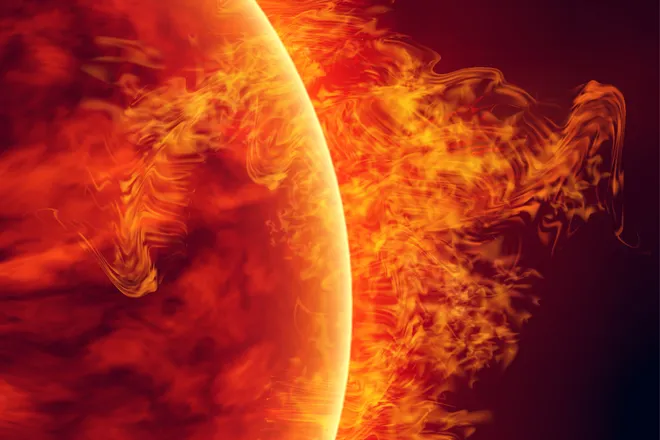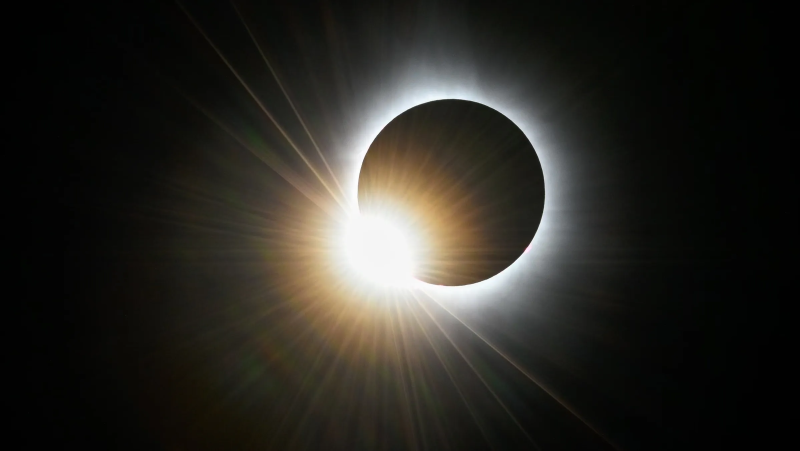Solar flares reported during total eclipse as sun nears solar maximum. What are they?
Earthlings have reported spotting solar flares during Monday's total eclipse.
The sun on Monday was expected to be at the height of its activity during its 11 year solar cycle also known as its "solar maximum." During this moment, the sun emits more solar flares and coronal mass ejections, massive bubbles of plasma threaded by rejected magnetic field lines.
Weather photographer Jack White shared photos that he said showed two solar flares right as the eclipse approached totality.
A solar flare on New Year's Eve, rated as an X-5, was the largest detected since the 2017 eclipse, when a X8.2 flare X8.2 flare occurred, according to NOAA.
Solar flares are only expected to become more common by 2025 as the sun continues to reach its solar maximum.

What are solar flares?
Considered our solar system's largest explosive events, solar flares occur when magnetic energy associated with sunspots is released, creating intense bursts of radiation.
Solar flares can last mere minutes, or can drag on for hours, depending on their intensity. NASA classifies solar flares based on their strength, with B-class being the smallest and X-class – which is what was detected last New Year's Eve – being the largest.
Weaker solar flares won't be noticeable here on Earth, but those with enough energy output to rank as an X-class have the potential to disrupt radio communications, electric power grids and navigation signals. In extreme cases, such powerful flares even pose risks to spacecraft and astronauts, according to NASA.
How big are solar flares
Solar flares are giant explosions of electromagnetic radiation that emit light, energy and high-speed particles.
They are measured by their strength from the smallest B-class, followed by C, M and the largest X class. Each class represents a ten-fold increase in energy output making is M 10 times a C and 100 times a B.
The largest solar flare ever recorded occurred on Monday, April 2, 2001 at 4:41 p.m. EDT, according to NASA. The flare, detected by the Solar and Heliospheric Observatory (SOHO) satellite, surpassed the power of the one on March 6, 1989, which played a role in disrupting power grids in Canada.

How long do solar flares last
Solar flares can last a few minutes to several hours.
The outburst of electromagnetic energy travels are the meeting of light, according to the NOAA, making the event occurring at the same time the event is observed.
Monday's total eclipse began in Mexico at about 11:07 a.m. PDT, before reaching Texas at 1:27 p.m. CDT and ending in Maine at 3:35 p.m. EDT.
Disclaimer: The copyright of this article belongs to the original author. Reposting this article is solely for the purpose of information dissemination and does not constitute any investment advice. If there is any infringement, please contact us immediately. We will make corrections or deletions as necessary. Thank you.



